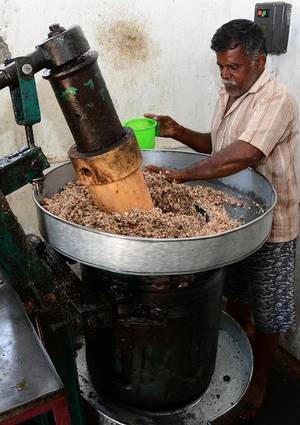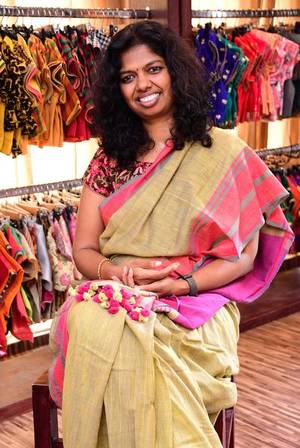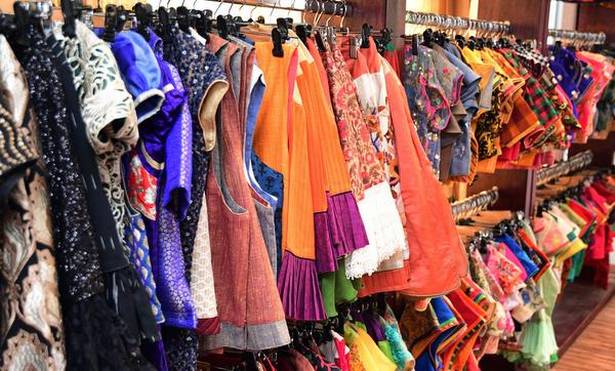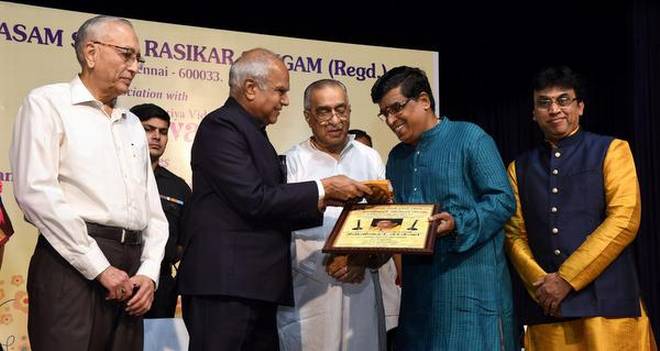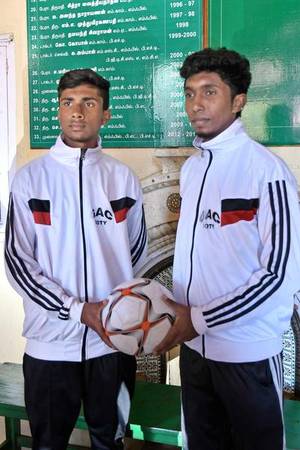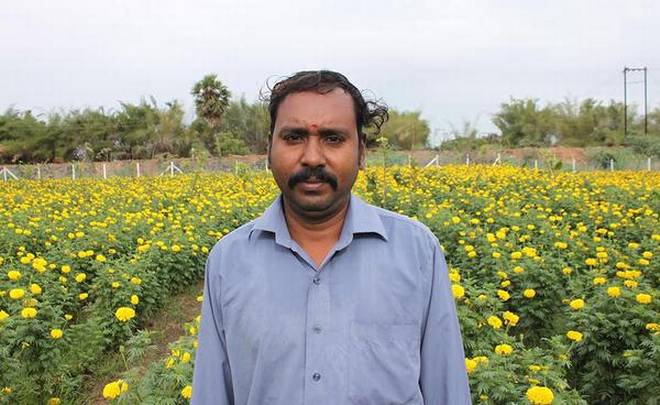A village near Coimbatore was once an edible oil heartland, with every household owning an oil press. Today, only one man continues to operate it
Decades before edible oil became a mass-produced consumer product packaged in plastic bags, an entire village in Tamil Nadu depended on oil presses for a living. Some 30 years ago, almost every household at Kadampadi near Coimbatore had an oil press. There was a Government-run society in the village that supplied families with sacks of groundnuts and sesame seeds to be pressed every week. Bullocks going in circles around the press, drawing a wooden shaft attached to it, the action grinding the nuts to a paste, was a common sight. Today, there’s only one man in the village operating an oil press.
A small board announces the sale of cold-pressed oil at the entrance of C Ramasamy’s house. Bordering a cornfield, it holds the last of the oil presses of Kadampadi. It is made of wood, but runs on electricity, unlike his father’s that was bullock-driven. “A bullock-operated chekku (press) needed two people to operate it — one had to control the bulls and the other had to keep scooping the groundnuts into the press,” recalls the 57-year-old. “I assisted my father as a little boy. I was usually positioned at the chekku while he controlled the bulls,” he says.
In the 1980s, there were 60 oil presses in the village. “We ground sesame seeds, groundnuts, neem seeds, coconut, and amanakku (for castor oil),” he remembers.
Seated on a string-cot, a wall separating us from the press that stands in a lime-washed room, we can smell the thick, nutty aroma. The floors are sticky and the walls by the press wear tell-tale oil splashes.
Ramasamy tumbles a tin of groundnuts into it and switches on the power. The press grunts to life — the gigantic wooden pestle crushes the nuts to a chocolate-coloured paste, tempting us to scoop some up to try. Ramasamy sprinkles water into it occasionally — “Otherwise, it will become powdery”. Within 20 minutes, clear oil collects by the pestle. We contain our excitement and ask with a straight tone — “That’s all it took to produce oil?”
Ramasamy smiles. “Yes. Groundnut oil tastes like ghee when sprinkled on dosai,” he offers. A kilogram of groundnuts will fetch 400 millilitres of oil. “For coconut, the same amount will provide 600 ml and sesame, 400 ml,” he explains. Ramasamy hasn’t finished school, but has studied the nuts and the oil they produce so well that he can tell by looking at the soil the quality of the crop it can grow. “I don’t buy nuts from places beyond Pollachi. Soil there is semi-white, and is not fertile for the crop I require. I stick to areas north of Kinathukadavu.”
Coimbatore , the land of textile mills, was their chief consumer. “We supplied oil to the canteens of the mills in the region,” remembers Ramasamy. His father delivered them in tins on a bullock cart. A cart could carry 30 tins, each with a capacity of 16 litres. “In the 70s, 60 families registered with the Khadi Board-run Society and took turns to go to Tiruvannamalai to source the nuts,” he explains. “We travelled every week to buy on auction, and once back home, we divided them. Each family got seven sacks a week.”
Business thrived and people were happy. But as the big crude oil players entered the fray, they lost out. “Our customers switched to packaged oil and our presses shut down, one by one,” Ramasamy shakes his head. “Villagers turned drivers and mill workers.” In fact, Ramasamy himself called it quits and did odd-jobs to no success, and finally revived the craft he learned from his forefathers. “These days, people have renewed interest in chekku oil. A lot of youngsters stop by to buy my oil. Demand has gone up; this is a good sign.”
Ramasamy is suddenly overcome by emotion as he recalls his past. He gets teary-eyed and we gently remind him of our presence, asking for his cooperation for a photoshoot. Would he like to change into a dhoti? “No, this is what I wear to work,” he tells us, standing up in his oil-kissed shirt and shorts.
For details, write to krgoilmill@gmail.com, or call 8760927281.
source: http://www.thehindu.com / The Hindu / Home> Life & Style> Food / by Akila Kannadasan / September 27th, 2018
